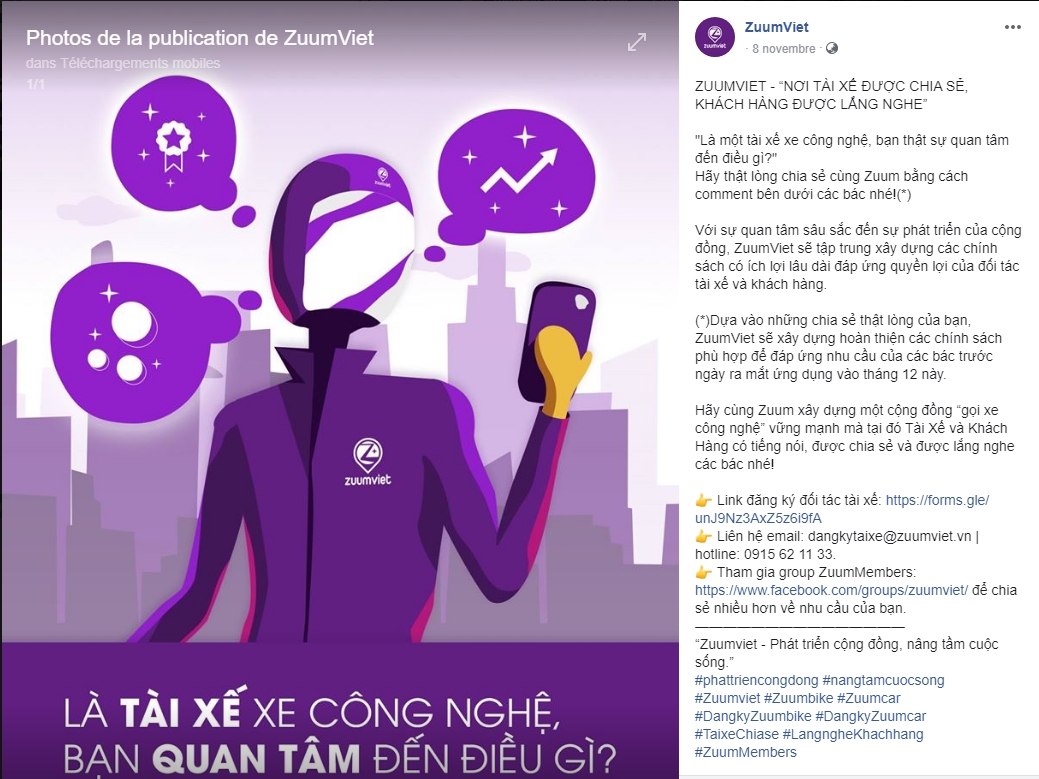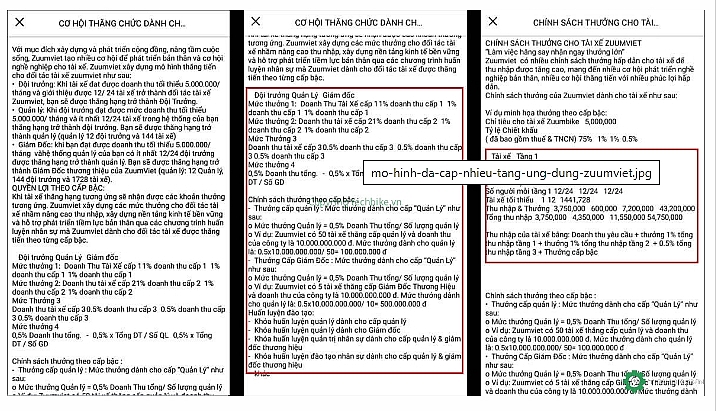Alarming practices among new ride-hailing services
 |
| Alarming practices among new ride-hailing services |
Vietnam’s ride-hailing market is considered one of the most dynamic in the region. According to a report from Google, Singaporean state-owned holding company Temasek, and US management consultancy firm Bain, Vietnam’s market was the fourth-largest in Southeast Asia last year, behind Indonesia, Singapore, and Thailand.
Market advisory firm ABI Research estimated the market’s value at $1.1 billion last year, potentially rising to $4 billion by 2025. As a result, local and foreign startups related to this service are launched every year. For example, local startups Unicar and ZuumViet are preparing to launch ride-hailing apps alongside delivery and other logistic services.
Unicar, based in the central province of Nghe An, is currently testing out its services in Vinh, the province’s capital. Resources available on the Unicar app include Uni Car (car ride-hailing), Uni Bike (motorbike ride-hailing), Uni Fast (express delivery service), Uni Truck (logistics service), and Uni Rent (car rental). The company has announced plans to expand to the central cities of Hue and Nha Trang, two major tourist hotspots in Vietnam, in the near future.
Meanwhile, ZuumViet has been posting driver recruitment advertisements for its ride-hailing app since early December, offering financial incentives for its first 3,000 drivers. ZuumViet’s services will include ZuumBike (motorbikes), ZuumCar (4-seater and 7-seater cars) and ZuumLux (luxury cars), according to the company’s website. The company has yet to publicise a launch date.
 |
MLM in ride-hailing
However, in order to recruit and retain drivers in this highly competitive market, many companies not only offer high discounts and bonuses, but also use tricks to obtain higher profits. For example, while Unicar has invested in branding, uniforms, drivers, and a specific headquarters, ZuumViet has conducted their business in a very different way. The company has not released much information, but its social media presence has shed some light on its approach to recruitment, with messages posted on its page reminiscent of multi-level marketing (MLM).
For instance, they urge potential employees to “Register right now to become a VIP member of Zuum Bike” and claim that “When you suggest a driver to the ZuumViet network, you will be able to be promoted to brand manager of ZuumViet, which operates 12 managers, 144 team leaders, and 1,728 drivers.”
ZuumViet encourages senior drivers to recruit or suggest new members. For each new employee that joins, the driver who suggested them earns 1 per cent of their sales. Therefore the more members that a driver puts forward, the more money he gets.
MixGo, a ride-hailing service developed by MixWay Technology Apply Co., Ltd. was launched last year, and advertised widely on social media, focusing on an outstanding business model different from other applications like Grab, Be, and Go-Viet. A MixGo driver has to pay VND3 million ($130), VND15 million ($650), or VND30 million ($1,300) to become an agent of MixGo. Then these agencies recruit other sub-agents to earn commission, and receive shares in the company in the future.
Illegal business model
VIR spoke with lawyer Lai Ngoc Thanh from Basico Law Firm on the issue of MLM in the ride-hailing industry. Thanh said that companies like these should base their activities on a sharing economy and apply technology to connect and match the demand of drivers and customers alike.
“These models, which focus on enlarging agencies and expanding networks and members, and asking drivers to pay for registration instead of reviewing the markets and approaching new customers, are quite alarming,” said Thanh.
MLM, which these models share similarities with, generally refers to business activity run through a network of participants, which allows these members to receive commissions, bonuses, and other economic benefits from their sale activities, and sale activities of other people in the network. However, Decree No. 40/2018/ND-CP issued two years ago on management of business activities also stipulates that this process can only be applied to goods.
“This means MLM in ride-hailing is not recognised by a legal framework,” added Thanh.
For illegal multi-level businesses, Article 92 in 2013’s Decree No.185/2013/ND-CP fixes a penalty of between VND40-50 million ($1,750-2,170) for MLM members, and VND80-100 million ($3,450-4,350) for traders. Decree 185 provides penalties on violations in commercial activities, production of, trading in counterfeit or banned goods and protection of consumer rights.
New services and business methods are quite good for socio-economic development, especially in the era of Industry 4.0. However, if businesses take advantage of legal loopholes and the state’s encouragement and support for innovative activities, they must be strictly controlled to mitigate damages, and maintain social security.
What the stars mean:
★ Poor ★ ★ Promising ★★★ Good ★★★★ Very good ★★★★★ Exceptional
Related Contents
Latest News
More News
- Ho Chi Minh City launches plan for innovation and digital transformation (February 25, 2026 | 09:00)
- Vietnam sets ambitious dairy growth targets (February 24, 2026 | 18:00)
- Masan Consumer names new deputy CEO to drive foods and beverages growth (February 23, 2026 | 20:52)
- Myriad risks ahead, but ones Vietnam can confront (February 20, 2026 | 15:02)
- Vietnam making the leap into AI and semiconductors (February 20, 2026 | 09:37)
- Funding must be activated for semiconductor success (February 20, 2026 | 09:20)
- Resilience as new benchmark for smarter infrastructure (February 19, 2026 | 20:35)
- A golden time to shine within ASEAN (February 19, 2026 | 20:22)
- Vietnam’s pivotal year for advancing sustainability (February 19, 2026 | 08:44)
- Strengthening the core role of industry and trade (February 19, 2026 | 08:35)

 Tag:
Tag:



















 Mobile Version
Mobile Version